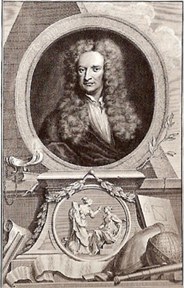Physics before Albert Einstein
Texts by Dr. Antonio Moreno González
Throughout the nineteenth century, physics gradually consolidated its position as an experimental and exact science; it was institutionalised as an activity carried out by scientists, who by then had been given that name; and it reached the classrooms of universities and secondary schools as a discipline to be taught and learnt separately from the philosophical and theological disciplines to which it had once been allied. Thus, a profession was created from which people could earn a living and even achieve some social prestige.
When Albert Einstein was born in 1879, experimental work still took precedence over theoretical grounding. The equivalence between heat and mechanical work was known, associating heat with energy phenomena, although there remained discrepancies over whether the heat was a substance, a type of energy or a physical process; light was now considered to be a form of wave motion, the battle having been won against those who argued that it was "corpuscular"; The discovery of the reciprocity between magnetism and electrical currents at the beginning of the century had led to Maxwell's electro-magnetic theory; and many experiments were being carried out regarding the production of radiation in a vacuum: Röntgen discovered X-rays the same year, 1895, in which Lorentz propounded his electron theory, confirmed in experiments by Thomson and Wien at the end of the century; Becquerel discovered the radioactive behaviour of uranium (1896).
Besides academic teachings, which he followed irregularly, Einstein devoted his time to studying the works of Maxwell (who had died the same year as Einstein was born), Hertz, Kirchhoff and Helmholtz, thus providing himself with a grounding in the latest developments in physics. At the recommendation of his lifelong friend, Michele Besso, he read the work of Ernst Mach, who, along with Newton, Maxwell, Lorentz and Planck, Einstein considered to be one of his precursors.

Sir Isaac Newton
(1642 - 1727)
